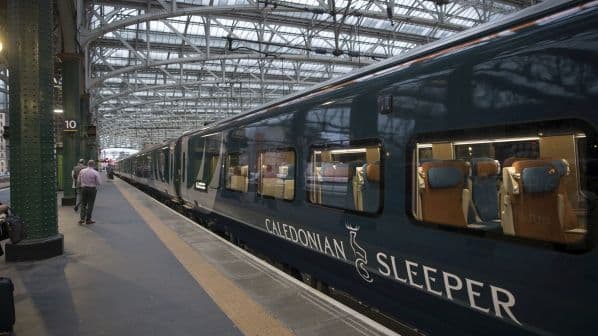SCOTTISH transport minister, Ms Jenny Gilruth, has announced to the Scottish Parliament that from June 25 the Caledonian Sleeper service will be operated by an arm’s-length company owned by the Scottish government.
In October 2022 the government announced it had served notice on Serco that it would terminate its Caledonian Sleeper franchise on June 25, seven years early. Gilruth said last year that a proposal from Serco to “rebase” the franchise agreement had been rejected on the grounds of “not representing value for money to the public.”
Gilruth said at that time that the possibility of other operators stepping in was being explored, as well as the option now exercised of the government itself taking over as the Operator of Last Resort (OLR). ScotRail, the operator of the rest of Scotland’s passenger train service, came under government control earlier in 2022.
Caledonian Sleeper has been operated by Serco since 2015 under a contract originally due to run until 2030. The service runs overnight from London Euston to Edinburgh, Glasgow, Aberdeen, Inverness and Fort William.
All trains feature both sleeping and seating cars. Innovations introduced during Serco’s tenure have included new rolling stock from CAF featuring compartments with a double bed and en-suite shower and toilet, as well as rooms with twin bunk beds.
Gilruth says the government’s decision to take over the franchise is no reflection on Serco’s performance. “The decision will provide a stable platform for the provision of sleeper services and it will also provide certainty for staff and, of course, the travelling public,” she told the Scottish parliament. “I would like to make it very clear that the Caledonian Sleeper staff will transfer to the Scottish government-owned entity, with their terms and conditions protected.”
However, the managing director of Serco’s transport business, Mr John Whitehurst, says that a direct contract with Serco, such as the company had proposed, would have ensured value for money. “Unfortunately, the Scottish government has not requested a costed proposal for a direct contract award, which would have allowed Scotland to benefit from the expertise of our Serco transport senior management team who understand this complex and unique hospitality-focused train operation like no one else, while also enabling Scottish ministers to be in complete control of the contract,” he says.
“Since Serco took over the management of the Caledonian Sleeper in 2015, we have brought about massive improvements to every aspect of the service for our employees, our passengers and for Scotland, despite having made significant losses on the contract.”
According to Whitehurst, “2022 was the best year ever for the service as it recovered from Covid,” with the highest revenue since the start of the franchise and passenger numbers back to pre-pandemic levels.
“The performance on right time arrival outperforms our franchise obligation of 80%; our guest satisfaction score has just reached 90% against a target of 85%, which has never been done before,” he says.
The government decision has been “warmly welcomed” by rail union RMT, which describes it as “a victory for RMT’s long hard-fought campaign for public ownership of the iconic service.”
The reaction of drivers’ union Aslef was more mixed. Its Scottish representative, Mr Kevin Lindsay, called Serco’s tenure “an abject failure”, and was disappointed that Caledonian Sleeper was not being combined with the ScotRail franchise.
Gilruth has been at pains to point out that bringing the Caledonian Sleeper service into public ownership is not seen as a permanent arrangement, saying that she will continue to monitor future market conditions.

